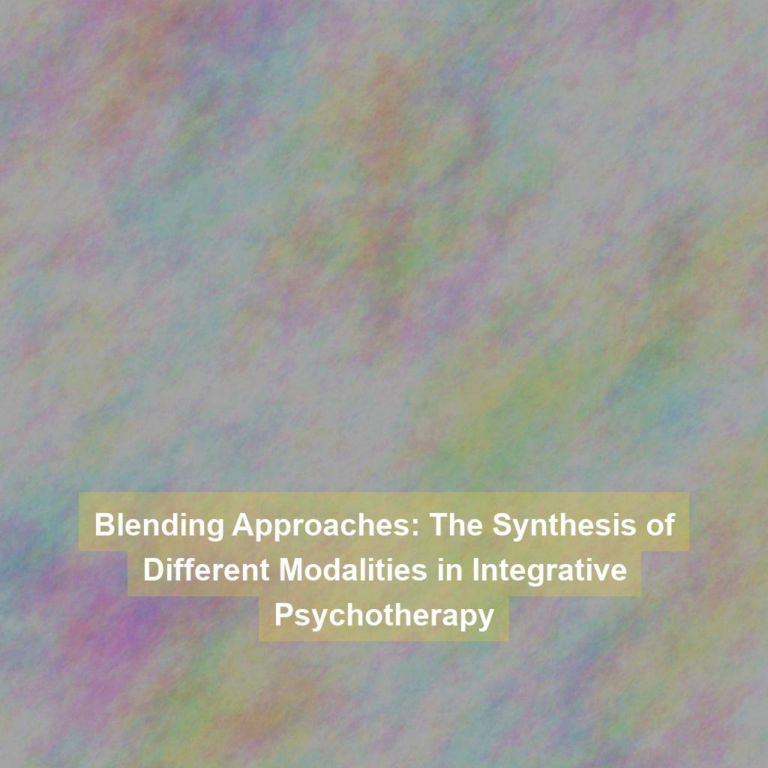You’ve probably heard the saying ‘variety is the spice of life,’ and in the world of psychotherapy, that sentiment holds true when it comes to eclectic therapy approaches within integrative psychotherapy.
With a rich tapestry of therapeutic modalities at your disposal, each offering its own unique set of tools and insights, it’s no wonder that many therapists are drawn to the idea of weaving together different approaches to create a treatment plan that is tailored to the individual needs of each client.
But what exactly does this approach entail, and how does it impact the therapeutic process?
Evolution of Eclectic Therapy
The evolution of eclectic therapy has been marked by a continual integration of various therapeutic approaches to address the complexity of human needs and experiences. It’s a dynamic process that has been shaped by the recognition that no single therapeutic approach is universally effective for all individuals.
As a result, therapists have increasingly embraced an eclectic approach that draws on a range of theoretical perspectives and techniques to tailor treatment to the unique needs of each client. This evolution has been driven by a growing understanding of the diverse factors that contribute to mental health challenges, including biological, psychological, social, and cultural influences.
By integrating elements from different therapeutic modalities such as cognitive-behavioral, psychodynamic, humanistic, and existential approaches, therapists can provide more comprehensive and personalized care. This integrative approach acknowledges that human experiences are multifaceted and can’t be easily categorized or addressed through a one-size-fits-all approach.
Ultimately, the evolution of eclectic therapy reflects a commitment to meeting the complex and individualized needs of clients in an ever-changing therapeutic landscape.
Key Principles of Integrative Psychotherapy
As you explore the key principles of integrative psychotherapy, you’ll discover a dynamic framework that builds upon the evolution of eclectic therapy, embracing diverse therapeutic approaches to meet individual needs effectively.
One key principle is the acknowledgment that no single therapeutic approach fits all clients. Integrative psychotherapy emphasizes the importance of tailoring the treatment to the unique needs, preferences, and circumstances of each individual. This principle underscores the idea that a one-size-fits-all approach isn’t suitable for the complex and varied experiences of different clients.
Another fundamental principle of integrative psychotherapy is the collaborative nature of the therapeutic relationship. This approach values the active participation of both the therapist and the client in the therapeutic process. It recognizes that the client is an expert on their own experiences and perspectives, and the therapist brings expertise in facilitating growth and healing. This collaborative alliance fosters a sense of empowerment and promotes a deeper understanding of the client’s inner world.
Integrating Cognitive-Behavioral Techniques
Integrating cognitive-behavioral techniques enhances the adaptability of therapy to address specific patterns of thought and behavior. By incorporating cognitive-behavioral techniques into integrative psychotherapy, you gain a versatile toolkit for addressing a wide range of issues. Cognitive-behavioral therapy (CBT) provides practical strategies to identify and challenge negative thought patterns, as well as modify maladaptive behaviors. This integration allows you to tailor the therapeutic approach to suit the unique needs of each client, fostering a more personalized and effective treatment experience.
CBT’s emphasis on collaboration and active participation aligns with the integrative approach, empowering you to work closely with clients in setting and achieving tangible goals. This collaborative process encourages clients to take an active role in their healing journey, promoting a sense of ownership and empowerment. Furthermore, integrating CBT techniques equips you with evidence-based tools to address specific concerns such as anxiety, depression, and phobias. These techniques can be seamlessly woven into the integrative framework, providing a holistic approach that addresses both the cognitive and behavioral aspects of psychological well-being.
Embracing Humanistic and Existential Approaches
Embracing humanistic and existential approaches allows you to further expand your therapeutic toolkit by emphasizing the client’s subjective experience and personal growth while addressing their fundamental questions about existence and meaning. Humanistic therapy focuses on the individual’s capacity for self-actualization and emphasizes the importance of creating a supportive and empathetic therapeutic relationship. By integrating humanistic approaches into your practice, you can prioritize the client’s unique perspective, fostering a sense of empowerment and self-discovery.
Existential therapy, on the other hand, delves into the client’s search for meaning and purpose in life, acknowledging the complexities and anxieties that arise from grappling with existential concerns. Incorporating existential techniques enables you to help clients explore their freedom, responsibility, and the choices they make, ultimately guiding them towards a deeper understanding of their existence.
Tailoring Treatment to Client Needs
To best address the unique needs of each client, it’s crucial to tailor the treatment approach accordingly, ensuring that it aligns with their specific goals and challenges. By customizing the therapeutic approach, you can ensure that it resonates with your individual experiences and aspirations.
This tailored approach acknowledges that no two clients are exactly alike, and therefore, a one-size-fits-all treatment strategy may not be effective. As a therapist, your role is to carefully assess and understand the nuances of each client’s situation, including their cultural background, personality, and mental health history. This allows you to adapt your therapeutic techniques and interventions to suit their particular circumstances.
Conclusion
In conclusion, incorporating eclectic therapy approaches into integrative psychotherapy allows for a diverse and flexible treatment approach that can be tailored to meet the unique needs of each client.
By integrating cognitive-behavioral techniques and embracing humanistic and existential approaches, therapists can provide a tapestry of methods to address the complexities of the human experience.
This approach honors the individuality of each client and acknowledges the multifaceted nature of mental health and well-being.







